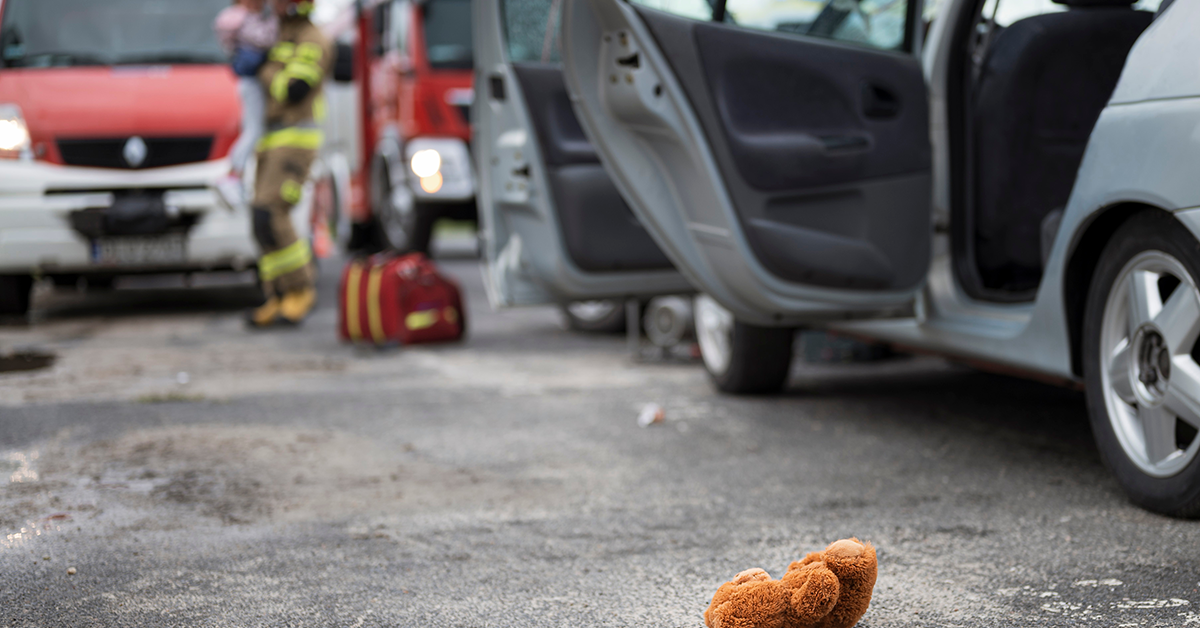Keeping your child safe is among your top priorities as a parent. However, it’s important to remember that even when exercising caution and control regarding your child’s safety, the negligence of others may come into play. As unpleasant as it may be to consider, it’s possible your child will be harmed one day as a result of someone else’s negligent actions or carelessness.
Watch The Video
Perhaps this has already happened. Depending on the specifics of the circumstances, if your child was injured because someone else was negligent, they may be eligible to receive financial compensation for losses associated with their injuries, such as past medical bills. Compensation could also be available for other losses, such as future medical costs, and pain and suffering.
The following guide will help you better understand your potential options when seeking compensation for a child’s injuries resulting from negligence. For more information about your specific case, strongly consider reviewing the matter with a legal professional. They can help you better understand whether your child is eligible for compensation and how you may go about pursuing it if so.
Types of Child Injury Personal Injury Cases
There are many potential scenarios in which a child can sustain injuries due to the negligence of other parties. Consider the following examples:
- Motor vehicle wrecks: Even if you’re a safe driver, you can’t prevent others from being careless on the road. Your child might have thus sustained injuries in an auto wreck resulting from the negligence of another motorist. In addition, motor vehicle crashes can occur due to negligence on the part of manufacturers, designers, and even the government agencies responsible for maintaining safe roads.
- Medical malpractice cases: Medical malpractice can take numerous forms. Examples include providing unnecessary treatment, failing to diagnose a child’s condition in a timely manner, performing surgery on the wrong party of the body, performing surgery on the wrong patient, prescribing a dangerous medication, failing to thoroughly warn you or your child about the potential dangers associated with a medication or procedure, and more. Because it can be difficult to prove that your child was harmed due to the negligence of a medical professional, it’s wise to speak with a lawyer in the early stages of building this type of case.
- Product liability: These types of cases are unique when compared to other types of personal injury cases. Many states, like Massachusetts, permit breach of warranty claims in addition to claims for negligence. Warranty claims do not require proof of negligence – similar to a “strict liability” rule for product liability cases. This essentially means you don’t need to prove negligence when a dangerous product harms your child, but rather must show that a product was “defective” when produced, marketed and/or sold. The fact that a defective product caused injury may be sufficient to justify seeking compensation, as long as the injury didn’t result from unforeseeable misuse of the product.
- Premises liability: Property owners have a duty to take reasonable steps to keep guests on their properties safe. Your child may seek compensation if a property owner didn’t fulfill this responsibility.
These are just a few examples. Be aware, your child may be eligible to receive compensation even if you don’t see their specific type of case in the above list. Speak with a legal professional for more information if you’re not sure whether you have a meritorious case.
Massachusetts is a no-fault car insurance state, meaning your own insurance would be the main source of compensation after a wreck, even if someone else caused the accident.
How to Pursue Compensation for a Child’s Injuries Resulting from Negligence
How you pursue compensation can depend on how your child was injured. For example, Massachusetts is a no-fault car insurance state, meaning your own insurance would be the main source of compensation after a wreck, even if someone else caused the accident. However, if your child’s injuries are severe enough to meet the criteria established under Massachusetts law, your child might also be eligible to take legal action against the negligent party who caused the accident.
Examples like the above illustrate the value of hiring an attorney. Their familiarity with the law can help you better determine how to go about seeking compensation.
Generally, though, the process will involve filing a claim with the insurance company of the negligent party. This requires first identifying the negligent party. You may need to investigate the cause of your child’s injuries thoroughly to ensure you identify the correct party. Keep in mind that there could be more than one person or entity responsible.
You’ll also need to gather sufficient evidence showing your child was harmed because someone else was negligent. If you don’t present sufficient evidence supporting your “burden of proof”, the insurance company could deny your claim.
The insurance company may not be willing to offer fair compensation even if you do provide evidence of negligence. You might have to negotiate with an insurer, or file a claim in court to begin litigation, fighting for the compensation your child deserves.
You don’t have to fight alone. At Swartz & Swartz, P.C., Boston personal injury attorneys are on hand to offer the representation your child deserves now. Learn more about what we can do for you by contacting us online or calling us at (617) 742-1900 today.
Need Help?
If you or someone you know, needs help from a lawyer, contact the law offices of Swartz & Swartz, use our live chat, or send us a message using the form below and we’ll get in touch to assess your case and how we can help.
Keep Reading
Want more? Here are some other blog posts you might be interested in.



